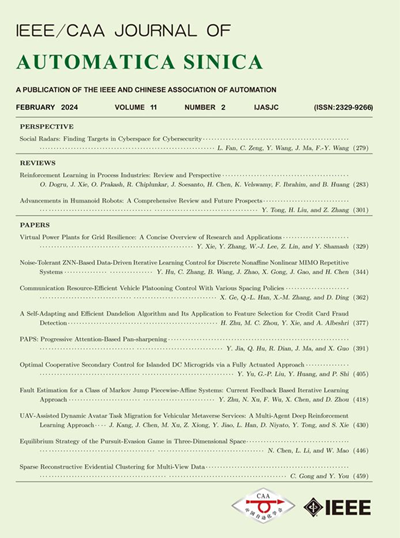Evolutionary Multi/Many-Objective Optimisation via Bilevel Decomposition
IF 15.3
1区 计算机科学
Q1 AUTOMATION & CONTROL SYSTEMS
引用次数: 0
Abstract
Decomposition of a complex multi-objective optimisation problem (MOP) to multiple simple subMOPs, known as M2M for short, is an effective approach to multi-objective optimisation. However, M2M facilitates little communication/collaboration between subMOPs, which limits its use in complex optimisation scenarios. This paper extends the M2M framework to develop a unified algorithm for both multi-objective and many-objective optimisation. Through bilevel decomposition, an MOP is divided into multiple subMOPs at upper level, each of which is further divided into a number of single-objective subproblems at lower level. Neighbouring subMOPs are allowed to share some subproblems so that the knowledge gained from solving one sub-MOP can be transferred to another, and eventually to all the sub-MOPs. The bilevel decomposition is readily combined with some new mating selection and population update strategies, leading to a high-performance algorithm that competes effectively against a number of state-of-the-arts studied in this paper for both multi- and many-objective optimisation. Parameter analysis and component analysis have been also carried out to further justify the proposed algorithm.通过双层分解进行多目标/多目标进化优化
将复杂的多目标优化问题(MOP)分解为多个简单的子 MOP(简称 M2M),是一种有效的多目标优化方法。然而,M2M 几乎无法促进子 MOP 之间的交流/协作,这限制了它在复杂优化场景中的应用。本文扩展了 M2M 框架,为多目标和多目标优化开发了一种统一算法。通过双层分解,一个 MOP 在上层被划分为多个子 MOP,每个子 MOP 在下层又被进一步划分为多个单目标子问题。相邻的子 MOP 可以共享一些子问题,这样从解决一个子 MOP 中获得的知识就可以传授给另一个子 MOP,并最终传授给所有的子 MOP。双层分解很容易与一些新的交配选择和种群更新策略相结合,从而产生了一种高性能算法,可以有效地与本文所研究的一些多目标和多目标优化的先进算法竞争。本文还进行了参数分析和成分分析,以进一步证明所提算法的合理性。
本文章由计算机程序翻译,如有差异,请以英文原文为准。
求助全文
约1分钟内获得全文
求助全文
来源期刊

Ieee-Caa Journal of Automatica Sinica
Engineering-Control and Systems Engineering
CiteScore
23.50
自引率
11.00%
发文量
880
期刊介绍:
The IEEE/CAA Journal of Automatica Sinica is a reputable journal that publishes high-quality papers in English on original theoretical/experimental research and development in the field of automation. The journal covers a wide range of topics including automatic control, artificial intelligence and intelligent control, systems theory and engineering, pattern recognition and intelligent systems, automation engineering and applications, information processing and information systems, network-based automation, robotics, sensing and measurement, and navigation, guidance, and control.
Additionally, the journal is abstracted/indexed in several prominent databases including SCIE (Science Citation Index Expanded), EI (Engineering Index), Inspec, Scopus, SCImago, DBLP, CNKI (China National Knowledge Infrastructure), CSCD (Chinese Science Citation Database), and IEEE Xplore.
 求助内容:
求助内容: 应助结果提醒方式:
应助结果提醒方式:


